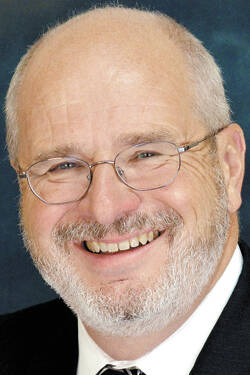Lying always has been part of the American political world.
In our history, we Americans have seen presidents lie about their health, their finances, their sex lives and, even more seriously and more tragically, the reasons they have sent our soldiers off to kill and die in wars. Strong evidence suggests that members of the U.S. Supreme Court colluded with congressional allies and a weak president during the late 1850s to preserve the fugitive slave law and concealed their actions, a course that made one of the bloodiest wars in human history all but inevitable.
Most of the lying in politics, though, is more mundane, petty chicaneries about matters that are embarrassing rather than devastating. A family values pol caught having an extramarital affair. A tax-the-rich member candidate who has relied on inventive tax dodges to shelter wealth.
Hypocrisies rather than felonies.
Still, they matter.
Because the truth matters.
It is the thing that we can count on in all weathers, the rock upon which we can plant our feet even when storms rage. The truth is what allows us to feel secure in our judgments as citizens — and as humans.
That is the reason for the First Amendment to our Constitution. All its provisions in some way protect our right to seek out and speak the truth as best we can discover and determine it.
The First Amendment exists because we Americans knew from our early days as a nation that the truth always would be imperiled and needed a sturdy defense.
What was true in the 1700s is true now.
We seem to be in the midst of an epidemic of lying on the public stage.
The current poster boy for the contagion is George Santos, a New York Republican who just won a seat in the U.S. House of Representatives.
In his run for office, Santos seems to have prevaricated about everything but the spelling of his name.
He claimed to be Jewish. He isn’t; he’s Catholic.
He said he had grandparents who were Ukrainian Jews who survived the Holocaust. He didn’t.
He avowed that he had degrees from Baruch College and New York University. Never happened.
He swore he’d worked for prestigious firms in the financial world. Another nope.
Worse, it appears at least a few members of the national and state Republican Party organizations knew about Santos’ many, many fibs and chose to remain silent. They apparently were content to profit from not just one lie but many.
It would be comforting to think of this as an isolated incident.
But it isn’t.
Across the land, we Americans see politicians spewing one falsehood after another — and their parties at best condoning the mendacity and at worst defending it.
Here in Indiana, our newly elected secretary of state, longtime GOP errand boy Diego Morales, fibbed about his military record, his work history and his campaign finances on his way to victory over a more honorable opponent. The leaders of the state Republican Party either stayed silent while Morales assaulted the truth or rallied around him.
Such behavior is part of a national pattern.
The evidence now is overwhelming and unassailable that former President Donald Trump lied about his taxes, his business dealings and finances and, of course, about “winning” the 2020 presidential election. Even worse, he has been caught admitting that he deliberately didn’t tell the truth about the seriousness of the COVID pandemic, a lie that led to many more American deaths than were necessary.
Yet much — perhaps even most — of his party still supports him.
Some do so out of fear. Others out of ambition. Still others out of both. But they link arms with his lying, nonetheless.
Since getting caught, George Santos has tried to explain away his many obfuscations. He says his lies were a “misjudgment.”
Many members of his party seem to agree with him.
He and they aren’t telling the truth about that, either.
Lying isn’t an error of judgment.
It’s a failure of character.
John Krull is director of Franklin College’s Pulliam School of Journalism and publisher of TheStatehouseFile.com, a news website powered by Franklin College journalism students, where this commentary originally appeared. The opinions expressed by the author do not reflect the views of Franklin College. Send comments to [email protected].





